Helpful Ideas from Self-Help Books
Looking to make changes? We sifted through this year's new releases, eliminated anything superficial or silly and discovered a few practical, illuminating techniques.
By Elisabeth Donnelly
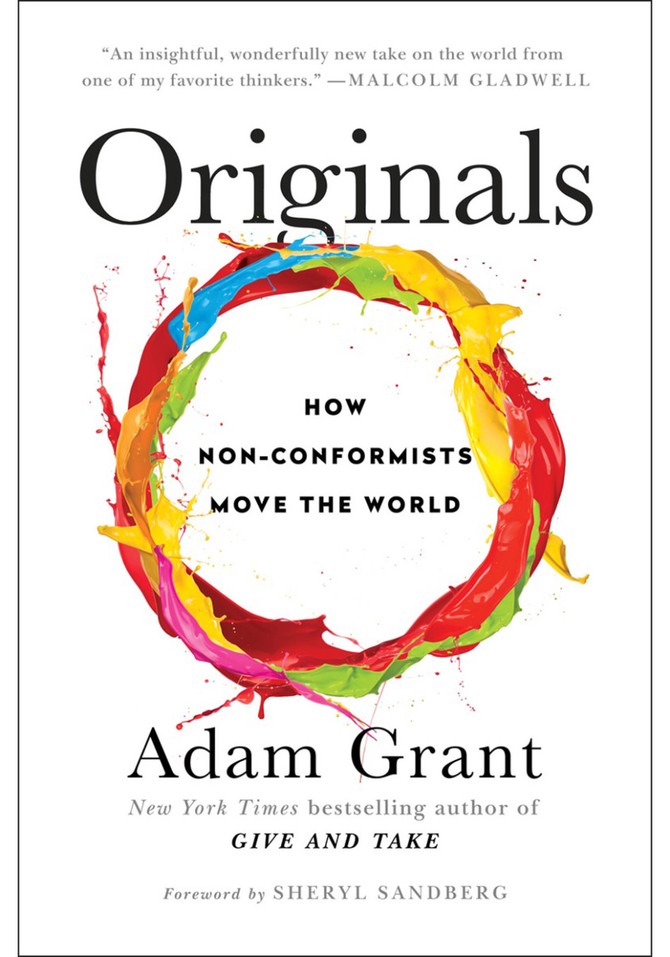
What You Want: To stop having crazy-angry feelings that get you nowhere.
Let's say you watch the news, and end up getting upset about illegal logging in Brazil. What do you do next? You might vent to your friends at a dinner party. Or you might leave a furious comment on a website. Either way, you're still seething. Thankfully, Wharton School professor Adam Grant, author of Originals: How Non-Conformists Move the World (out in February), offers concrete suggestions on how to reframe our unwieldy frustrations into "empathetic anger." "Instead of venting about the harm that a perpetrator has done, we need to reflect on the victims who have suffered from it," Grant writes. In a recent study, conducted by social scientists from Harvard and Columbia, people who watched a CEO overpay himself, while underpaying an employee, were spurred to action when encouraged to focus on the suffering person(the employee) rather than the villain (the CEO). In other words, when we zero in on the bad guy, we usually get mad, rant and don't do much. When we look at the victim, we find a way to help—and end up feeling empowered.
Let's say you watch the news, and end up getting upset about illegal logging in Brazil. What do you do next? You might vent to your friends at a dinner party. Or you might leave a furious comment on a website. Either way, you're still seething. Thankfully, Wharton School professor Adam Grant, author of Originals: How Non-Conformists Move the World (out in February), offers concrete suggestions on how to reframe our unwieldy frustrations into "empathetic anger." "Instead of venting about the harm that a perpetrator has done, we need to reflect on the victims who have suffered from it," Grant writes. In a recent study, conducted by social scientists from Harvard and Columbia, people who watched a CEO overpay himself, while underpaying an employee, were spurred to action when encouraged to focus on the suffering person(the employee) rather than the villain (the CEO). In other words, when we zero in on the bad guy, we usually get mad, rant and don't do much. When we look at the victim, we find a way to help—and end up feeling empowered.
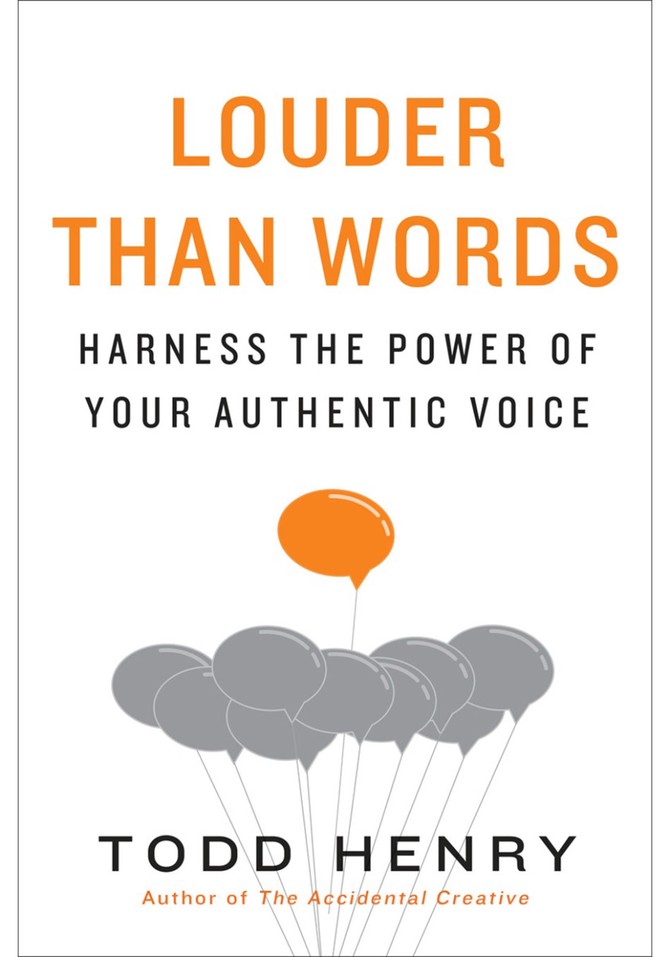
What You Want: To find out what you (really) want to do.
Figuring out what you're meant to do in life is hard. You probably like a bunch of things, love a few other things and worry that committing to any of them might land you in a fireball of failure. In his book, Louder Than Words: Harness the Power of Your Authentic Voice, Todd Henry, an author and consultant, has come up with a practice called "50 Notables" that helps you rethink your options.
Take a pen and paper, he advises. List 10 instances when people responded to your ideas. Then ask yourself: Why did they respond? What did you do that compelled them to listen? Next, list 10 times when you were moved emotionally. Then 10 times you felt angry over an injustice. Then 10 of your greatest hopes, and 10 times you've solved a problem. At the end of this process, you'll have 50 specific examples of your strengths, passions and dreams.
Now, writes Henry, the work begins. Look for patterns. How did your ability to convince someone of your idea correlate with an instance when you were moved emotionally? How could your success at solving a problem be used to pursue a dream? "These categories," writes Henry, "are a great calibration tool to help you figure out how to direct your work." And life.
Figuring out what you're meant to do in life is hard. You probably like a bunch of things, love a few other things and worry that committing to any of them might land you in a fireball of failure. In his book, Louder Than Words: Harness the Power of Your Authentic Voice, Todd Henry, an author and consultant, has come up with a practice called "50 Notables" that helps you rethink your options.
Take a pen and paper, he advises. List 10 instances when people responded to your ideas. Then ask yourself: Why did they respond? What did you do that compelled them to listen? Next, list 10 times when you were moved emotionally. Then 10 times you felt angry over an injustice. Then 10 of your greatest hopes, and 10 times you've solved a problem. At the end of this process, you'll have 50 specific examples of your strengths, passions and dreams.
Now, writes Henry, the work begins. Look for patterns. How did your ability to convince someone of your idea correlate with an instance when you were moved emotionally? How could your success at solving a problem be used to pursue a dream? "These categories," writes Henry, "are a great calibration tool to help you figure out how to direct your work." And life.
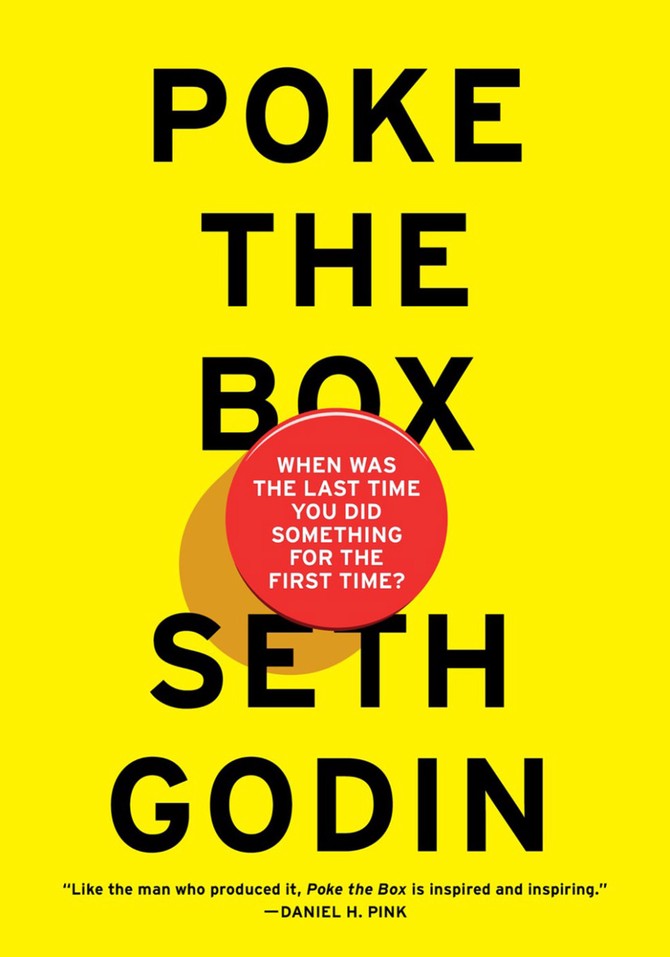
What You Want: To help a friend who says she's stuck.
Starting a conversation with a friend who's floundering can be tricky. It's not as if you're going to say, "Hey, you're supertalented and smart, why are you still stuck as an assistant, or not starting your own company or dating jerky lowlifes?" But author and entrepreneur Seth Godin has a more subtle way of getting people to open up, which he writes about in his (reissued) book, Poke the Box. Though Godin's exercise was developed to foster team-building in corporate cultures, we think it can also be effective in your personal life. The next time you're having coffee with that friend, ask her, "What are you afraid of, when it comes to massive failure or massive success?" This focuses her attention on the general ideas of "failure" and "success," instead of her "failure" and her" success." Then she's more likely to speak specifically and honestly about her dreams—and what might be holding them back. The next step? Go home and ask yourself the same question. (Gulp.)
Starting a conversation with a friend who's floundering can be tricky. It's not as if you're going to say, "Hey, you're supertalented and smart, why are you still stuck as an assistant, or not starting your own company or dating jerky lowlifes?" But author and entrepreneur Seth Godin has a more subtle way of getting people to open up, which he writes about in his (reissued) book, Poke the Box. Though Godin's exercise was developed to foster team-building in corporate cultures, we think it can also be effective in your personal life. The next time you're having coffee with that friend, ask her, "What are you afraid of, when it comes to massive failure or massive success?" This focuses her attention on the general ideas of "failure" and "success," instead of her "failure" and her" success." Then she's more likely to speak specifically and honestly about her dreams—and what might be holding them back. The next step? Go home and ask yourself the same question. (Gulp.)
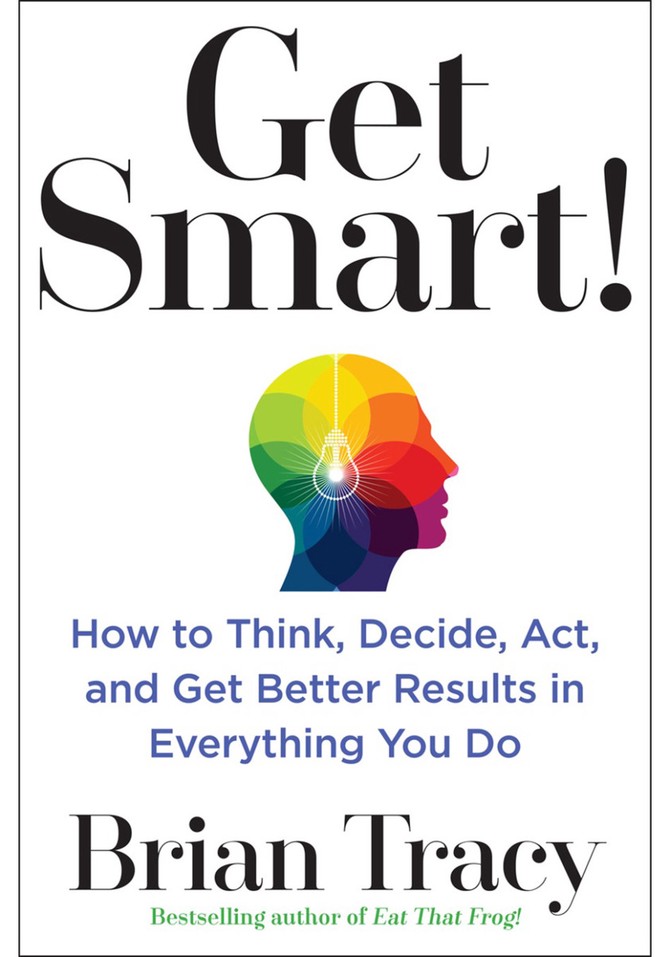
What You Want: To find more hours in the day.
Writing a to-do list might make you feel better—but it's not always the best way to get things done. In his book Get Smart! How to Think, Decide, Act, and Get Better Results in Everything You Do, author and business consultant Brian Tracy proposes revising that list with what he calls a "triage" exercise. His name for this is ABCDE. First, you need to establish which of your tasks is most important. Instead of thinking about what work is required, or how you'll get it completed, simply consider the consequences of not getting it done. Category A jobs have "serious potential consequences," writes Tracy, if you don't tackle them. B jobs are less important than those in the first category, but not doing them has mild consequences. C jobs can be done with breaks along the way. D jobs can be delegated. And E is for tasks that can be eliminated. Put a letter next to each "to-do" on your list, revise the order alphabetically and start with the A's.
Writing a to-do list might make you feel better—but it's not always the best way to get things done. In his book Get Smart! How to Think, Decide, Act, and Get Better Results in Everything You Do, author and business consultant Brian Tracy proposes revising that list with what he calls a "triage" exercise. His name for this is ABCDE. First, you need to establish which of your tasks is most important. Instead of thinking about what work is required, or how you'll get it completed, simply consider the consequences of not getting it done. Category A jobs have "serious potential consequences," writes Tracy, if you don't tackle them. B jobs are less important than those in the first category, but not doing them has mild consequences. C jobs can be done with breaks along the way. D jobs can be delegated. And E is for tasks that can be eliminated. Put a letter next to each "to-do" on your list, revise the order alphabetically and start with the A's.
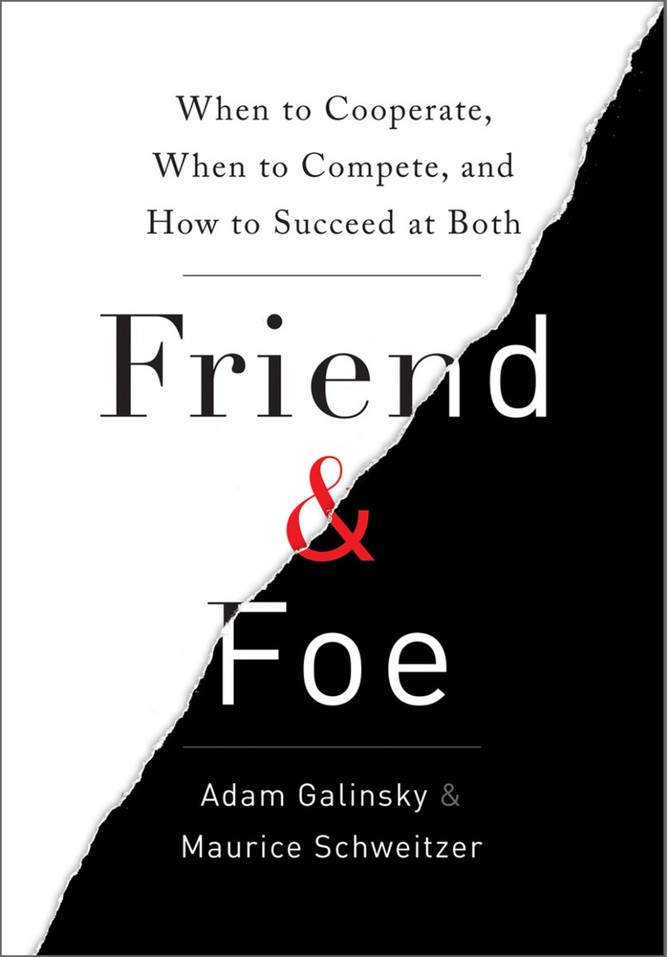
What You Want: To feel powerful, even when you're secretly intimidated.
What to Try: Quick, effective confidence-boosting is possible, found business-school professors Adam Galinsky and Maurice Schweitzer in their research at Columbia University and the Wharton School. In a scientific study—which they write about in Friend & Foe: When to Cooperate, When to Compete, and How to Succeed at Both — they asked one pool of job applicants to do a simple task before being interviewed: To take 10 minutes to write about an experience they had when they felt powerful. Another pool of applicants went in cold. The result? Those who did the "power prime," as the two termed it, raised their chances of job acceptance by 70 percent.
"To be perceived as powerful," the professors write, "it helps not only to be in the right place at the right time, but the right frame of mind." As further proof, that we make manufacture our confidence, take Amy Cuddy's viral TED talk on "power posing," whereby she describes how putting your hands on your hips for two minutes can change your frame of mind before a big presentation.. Prime yourself before your next power lunch...or the far more intimidating meeting with the PTA-nominating committee.
What to Try: Quick, effective confidence-boosting is possible, found business-school professors Adam Galinsky and Maurice Schweitzer in their research at Columbia University and the Wharton School. In a scientific study—which they write about in Friend & Foe: When to Cooperate, When to Compete, and How to Succeed at Both — they asked one pool of job applicants to do a simple task before being interviewed: To take 10 minutes to write about an experience they had when they felt powerful. Another pool of applicants went in cold. The result? Those who did the "power prime," as the two termed it, raised their chances of job acceptance by 70 percent.
"To be perceived as powerful," the professors write, "it helps not only to be in the right place at the right time, but the right frame of mind." As further proof, that we make manufacture our confidence, take Amy Cuddy's viral TED talk on "power posing," whereby she describes how putting your hands on your hips for two minutes can change your frame of mind before a big presentation.. Prime yourself before your next power lunch...or the far more intimidating meeting with the PTA-nominating committee.
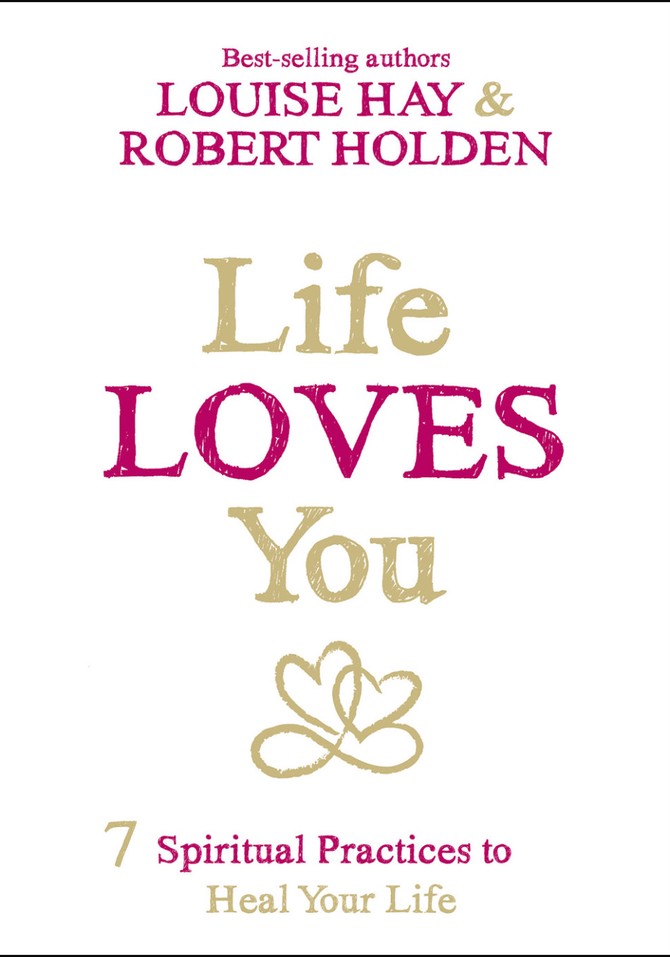
What You Want: To forgive the very, very, very, very difficult person in your life.
What to Try: Most of us want so badly to forgive the people who have hurt us, but we just can't figure out how. In their new book, Life Loves You: 7 Spiritual Practices to Heal Your Life, mindfulness experts Louise Hay and Robert Holden, PhD, have come up with a game-changing practice called the Forgiveness Scale. Take five minutes to get comfortable, they write, as if you're doing a daily meditation. Breathe in and out, relax your body and focus on who—or what—is the source of anger and frustration in your life. Ask yourself, on a scale of zero to 100 percent, "How much have I forgiven this person?"
More often than not, you've forgiven her (or him) a little, but not as much as you want to, which is what makes their practice so effective. It stops you from thinking about forgiveness as an all-or-nothing proposition at which you will either succeed or...more likely... fail.
Let's say you forgive your back-talking sister about 60 percent. Now, the authors write, keep breathing. Imagine what it would be like if you forgave her 70 percent? What difference would 10 percent make? Note the slight change in your body, the letting go of some of the hate and memories, the fears and old arguments. Do this until you get to 100 percent forgiveness. When you are finished with your sister, move onto other people in your life. Our favorite idea? Start The Forgiveness Scale with yourself. (Note: This practice works best with repetition.)
What to Try: Most of us want so badly to forgive the people who have hurt us, but we just can't figure out how. In their new book, Life Loves You: 7 Spiritual Practices to Heal Your Life, mindfulness experts Louise Hay and Robert Holden, PhD, have come up with a game-changing practice called the Forgiveness Scale. Take five minutes to get comfortable, they write, as if you're doing a daily meditation. Breathe in and out, relax your body and focus on who—or what—is the source of anger and frustration in your life. Ask yourself, on a scale of zero to 100 percent, "How much have I forgiven this person?"
More often than not, you've forgiven her (or him) a little, but not as much as you want to, which is what makes their practice so effective. It stops you from thinking about forgiveness as an all-or-nothing proposition at which you will either succeed or...more likely... fail.
Let's say you forgive your back-talking sister about 60 percent. Now, the authors write, keep breathing. Imagine what it would be like if you forgave her 70 percent? What difference would 10 percent make? Note the slight change in your body, the letting go of some of the hate and memories, the fears and old arguments. Do this until you get to 100 percent forgiveness. When you are finished with your sister, move onto other people in your life. Our favorite idea? Start The Forgiveness Scale with yourself. (Note: This practice works best with repetition.)
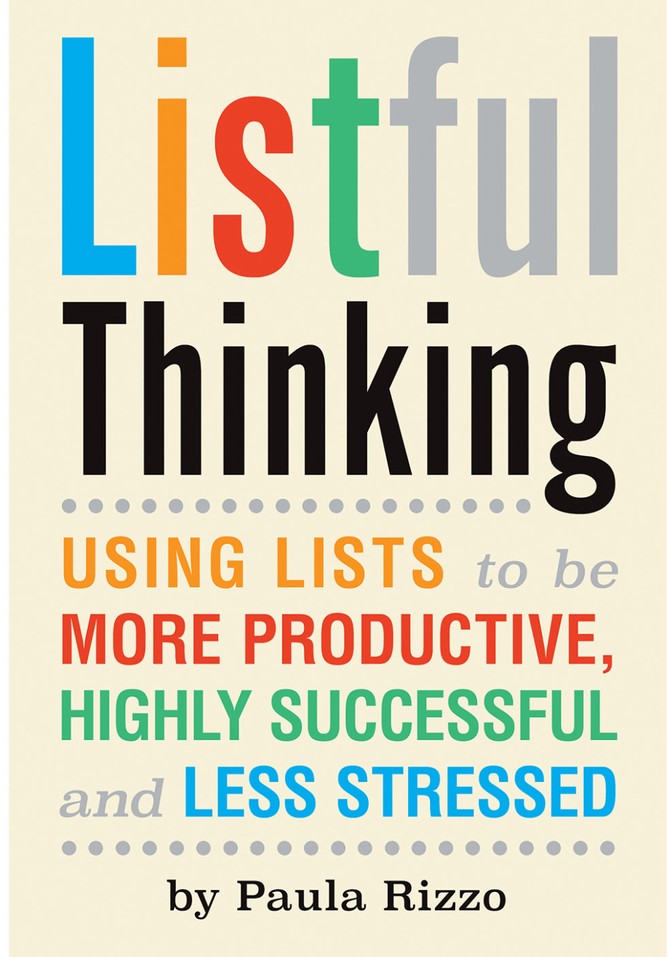
What You Want: To make better big, tough decisions.
What to Try: Life presents us with millions of choices every day, but when we have to make the biggies—do I take this job? Do I marry this person? Is this my dream house?—most of us resort to the same old strategy: the pro-con list. The problem with that, writes Paula Rizzo, the author of Listful Thinking: Using Lists to Be More Productive, Successful and Less Stressed is that no one ever really taught us how to make such a list. The standard thought is that three pros and five cons means it's a no. But to get a clearer picture, write down all your pros and cons. No detail is too small! The key is to arrange both columns in terms of priorities. What seems most important? Put those at the top. The least important factors go at the bottom. Once you have a good first draft, sleep on it. When you come back to the list the next day, think about whether you need to re-prioritize? Can some items be taken off? Now...how does the list look—and what seems like the best choice? If you need further assistance, share the list with a friend, one who—you saw this coming—makes decisions you often admire.
What to Try: Life presents us with millions of choices every day, but when we have to make the biggies—do I take this job? Do I marry this person? Is this my dream house?—most of us resort to the same old strategy: the pro-con list. The problem with that, writes Paula Rizzo, the author of Listful Thinking: Using Lists to Be More Productive, Successful and Less Stressed is that no one ever really taught us how to make such a list. The standard thought is that three pros and five cons means it's a no. But to get a clearer picture, write down all your pros and cons. No detail is too small! The key is to arrange both columns in terms of priorities. What seems most important? Put those at the top. The least important factors go at the bottom. Once you have a good first draft, sleep on it. When you come back to the list the next day, think about whether you need to re-prioritize? Can some items be taken off? Now...how does the list look—and what seems like the best choice? If you need further assistance, share the list with a friend, one who—you saw this coming—makes decisions you often admire.
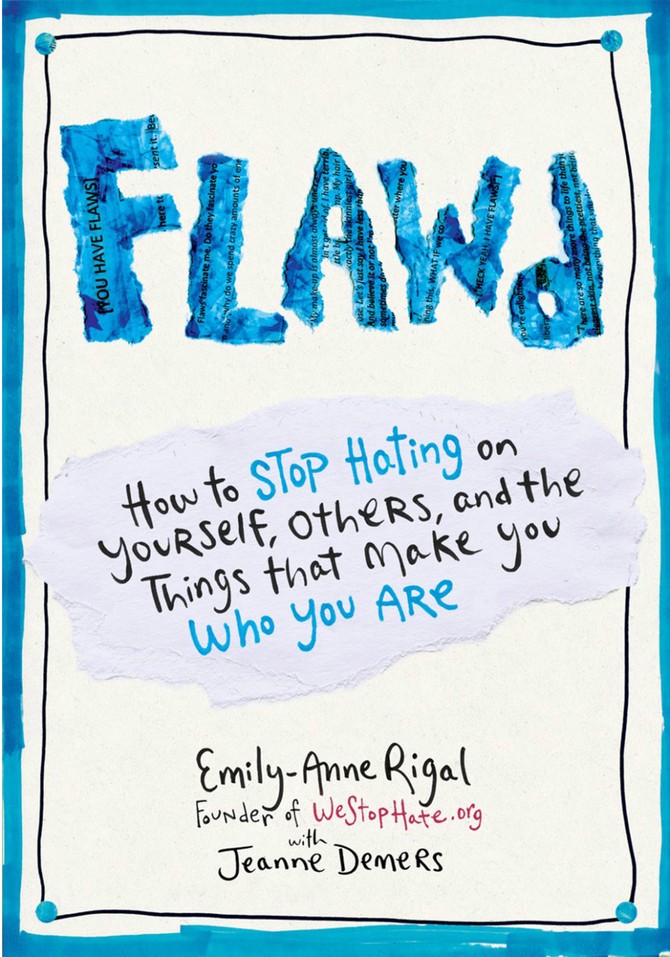
What You Want: To stop thinking of yourself as the "bad one in the family," or "the good one" or whatever label was assigned to you at age three.
What to Try: For bullying activist Emily-Anne Rigal—the founder of WeStopHate.org and co-author of Flawd: How to Stop Hating on Yourself, Others, and the Things That Make You Who You Are —the process of figuring out who we are begins with a series of questions that recognizes our many identities—and labels. Take out a pen and answer the following: Who am I first thing in the morning? What's my personality when I'm with friends? Family? In the workspace? "Different aspects of our personality come out at different times depending on who we're with, what we're doing, how much sugar we ate an hour ago," Rigal writes. Answer a few more questions: Who would I be if I was a cartoon character? If I was an animal? Who am I when I'm happy and engaged and doing something I love? Looking over your responses may just lead to this unexpected breakthrough: Though you may contain multitudes, not one of them defines you. Your job—and privilege—is to pick the one, or several, that best fit and discard those assigned to you by others.
What to Try: For bullying activist Emily-Anne Rigal—the founder of WeStopHate.org and co-author of Flawd: How to Stop Hating on Yourself, Others, and the Things That Make You Who You Are —the process of figuring out who we are begins with a series of questions that recognizes our many identities—and labels. Take out a pen and answer the following: Who am I first thing in the morning? What's my personality when I'm with friends? Family? In the workspace? "Different aspects of our personality come out at different times depending on who we're with, what we're doing, how much sugar we ate an hour ago," Rigal writes. Answer a few more questions: Who would I be if I was a cartoon character? If I was an animal? Who am I when I'm happy and engaged and doing something I love? Looking over your responses may just lead to this unexpected breakthrough: Though you may contain multitudes, not one of them defines you. Your job—and privilege—is to pick the one, or several, that best fit and discard those assigned to you by others.

What You Want: To strengthen your willpower.
What to Try: Daily training, writes psychotherapist Piero Ferrucci in his new book Your Inner Will: Finding Personal Strength in Critical Times, beginning with the following question: "Are the events of my life the result of forces over which I have no say, or can I in some way mold my existence?" The belief that you can control and improve your life, he argues, is a function of willpower—and willpower can be developed. To start, Ferrucci suggests, write down a list of small acts that require effort and concentration and that you can complete in 24-hour period. For example: not watching television, eating junk food or reading the gossip sites online. Or: making a tricky phone call, chewing your food properly or going to bed a half hour earlier. No matter how long the list is, chose two or three acts to accomplish the following day. Sure, quitting TV or the gossip blogs for a night doesn't mean that you've quit them for the rest of your life. But the point of the exercise isn't to eliminate all your bad habits in one sitting, it's to give your willpower a workout—and provide yourself with a few very noticeable examples of your own strength, which will then inspire you to try again harder the next day.
What to Try: Daily training, writes psychotherapist Piero Ferrucci in his new book Your Inner Will: Finding Personal Strength in Critical Times, beginning with the following question: "Are the events of my life the result of forces over which I have no say, or can I in some way mold my existence?" The belief that you can control and improve your life, he argues, is a function of willpower—and willpower can be developed. To start, Ferrucci suggests, write down a list of small acts that require effort and concentration and that you can complete in 24-hour period. For example: not watching television, eating junk food or reading the gossip sites online. Or: making a tricky phone call, chewing your food properly or going to bed a half hour earlier. No matter how long the list is, chose two or three acts to accomplish the following day. Sure, quitting TV or the gossip blogs for a night doesn't mean that you've quit them for the rest of your life. But the point of the exercise isn't to eliminate all your bad habits in one sitting, it's to give your willpower a workout—and provide yourself with a few very noticeable examples of your own strength, which will then inspire you to try again harder the next day.

What You Want: To learn from constructive criticism (instead of just getting upset).
What to Try: A change in vocabulary. Back when the founder of Virgin Atlantic, Richard Branson, was just starting out in the airline business he used to cold call passengers who had just arrived at Heathrow on a Virgin airplane and say, "this is Richard Branson, I'm just calling to welcome you to England and ask if everything went well on the flight." Whatever the passenger went on to say about his company—be it a complaint or a hymn of praise—Branson identified it as an "observation." That decision, he writes in his new book The Virgin Way: Everything I Know About Leadership, allowed him to take the comments of the passenger less personally and actually hear the information the speaker was trying to communicate. Our take? The technique can be applied to more than customer relations. Imagine your teenage daughter comments on your not having done the laundry last night. If you take it as a complaint, you're bound to feel guilt, resentment and not a little rage, since she's 14 and can operate a washer/dryer. If you take it as an observation, then it's a little simpler. You did not do the laundry. And you can decide to do it tonight—or you can remind her that she could.
What to Try: A change in vocabulary. Back when the founder of Virgin Atlantic, Richard Branson, was just starting out in the airline business he used to cold call passengers who had just arrived at Heathrow on a Virgin airplane and say, "this is Richard Branson, I'm just calling to welcome you to England and ask if everything went well on the flight." Whatever the passenger went on to say about his company—be it a complaint or a hymn of praise—Branson identified it as an "observation." That decision, he writes in his new book The Virgin Way: Everything I Know About Leadership, allowed him to take the comments of the passenger less personally and actually hear the information the speaker was trying to communicate. Our take? The technique can be applied to more than customer relations. Imagine your teenage daughter comments on your not having done the laundry last night. If you take it as a complaint, you're bound to feel guilt, resentment and not a little rage, since she's 14 and can operate a washer/dryer. If you take it as an observation, then it's a little simpler. You did not do the laundry. And you can decide to do it tonight—or you can remind her that she could.
Published 01/04/2016

